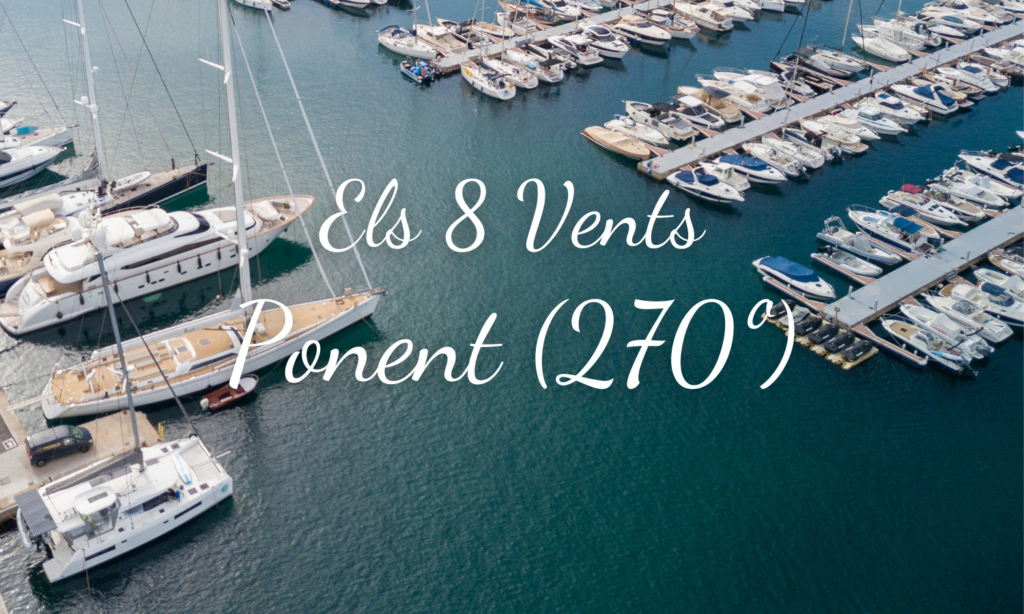Reading: 2 min 20s
Ponent: the west wind that shapes the Mediterranean
The Ponent, the wind that blows from the west, has been present in Mediterranean history, culture, and nature for centuries. This dry and warm wind not only influences the climate but also affects navigation, agriculture, and popular traditions. Let’s explore all its details!

Origin and Etymology
The name “Ponent” comes from the Latin ponens, meaning “to place” or “where the sun sets.” This term began to be used to refer to the west cardinal point, as it is in this direction that the sun sets at dusk. In other Mediterranean languages, Ponent is also known as “Poniente” in Spanish and “Ponente” in Italian, maintaining the same etymological root.
Climatic and Geographical Effects
Ponent is characterized as a dry and warm wind that often brings hot, low-humidity days. When it reaches the Costa Brava, it can intensify maritime storms, increasing water movement and affecting navigation. Additionally, this wind reduces environmental humidity, causing rapid water evaporation and potential dehydration of vegetation and crops.
Influence on Nature and Agriculture
Ponent has a direct impact on Mediterranean fauna and flora. Many animal species seek shelter from this wind to avoid dehydration. In agriculture, despite its drying effect, this wind has been harnessed for its natural ventilation and drying capacity for agricultural products such as:
- Cereals and grains: Natural drying helps with preservation.
- Dried fruits: Such as raisins and dried figs, which benefit from Ponent for their dehydration process.
- Viticulture: In some regions, the wind contributes to the process of grape drying for sweet wines.
Culture and Mythology
Ponent also holds a strong presence in popular culture. In Greek mythology, this wind was represented by Zephyrus, the god of the west wind, considered a gentle breeze and a harbinger of spring. In Mediterranean folklore, Ponent is a wind of transition, accompanying the spectacular sunsets that mark the end of the day.
Moreover, in some coastal regions, this wind has been linked to popular beliefs, such as the idea that it helps cleanse the air and refresh the atmosphere after days of calm or humidity.
A Wind of Contrasts
Although Ponent can be dehydrating and cause intense heat, it also plays a fundamental role in the Mediterranean’s natural cycle. Its influence on climate, agriculture, and culture makes it a distinctive and unmistakable element of our region.
The next time you feel the Ponent blowing, remember that it is much more than just a wind—it is part of the history, nature, and identity of the Mediterranean.








